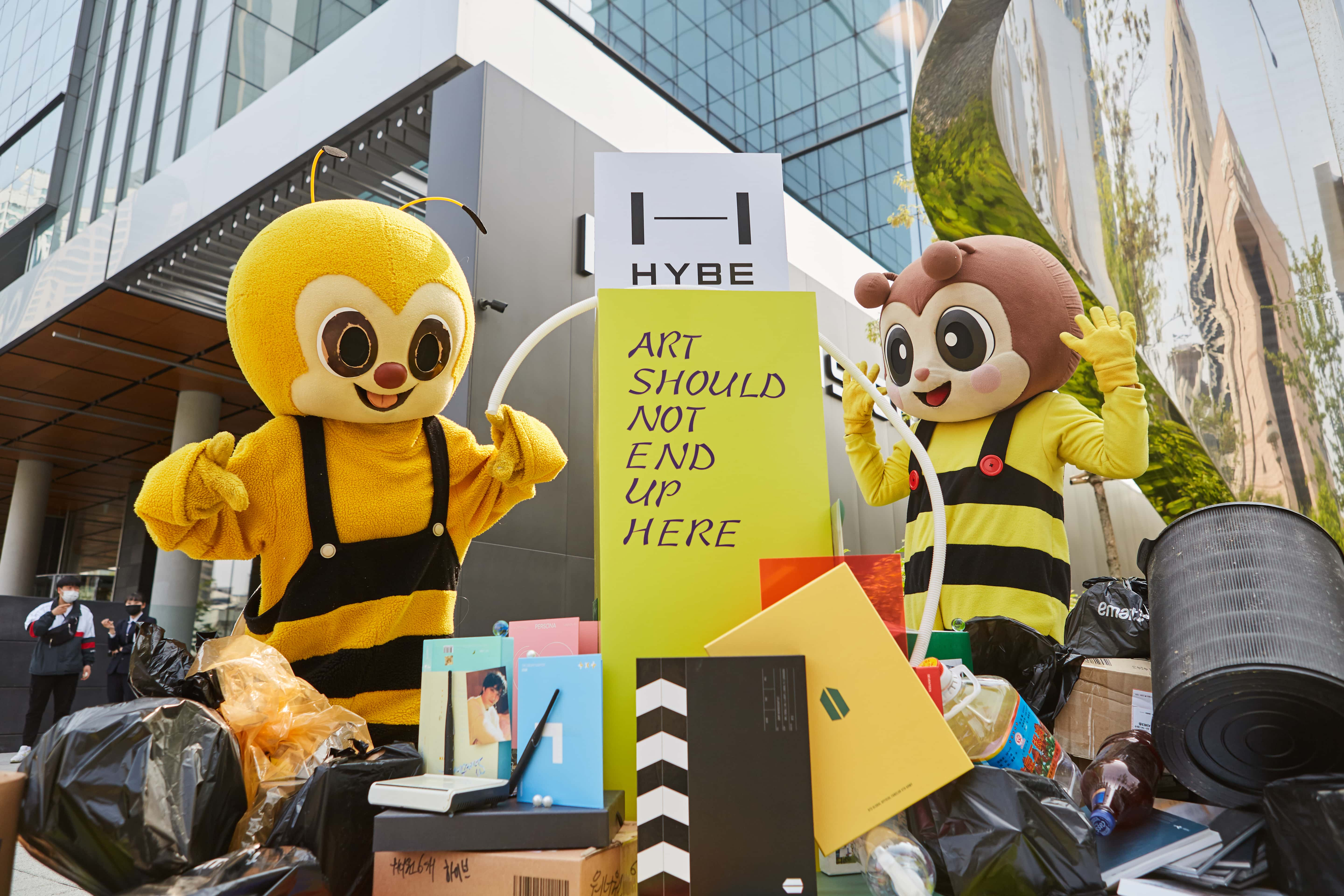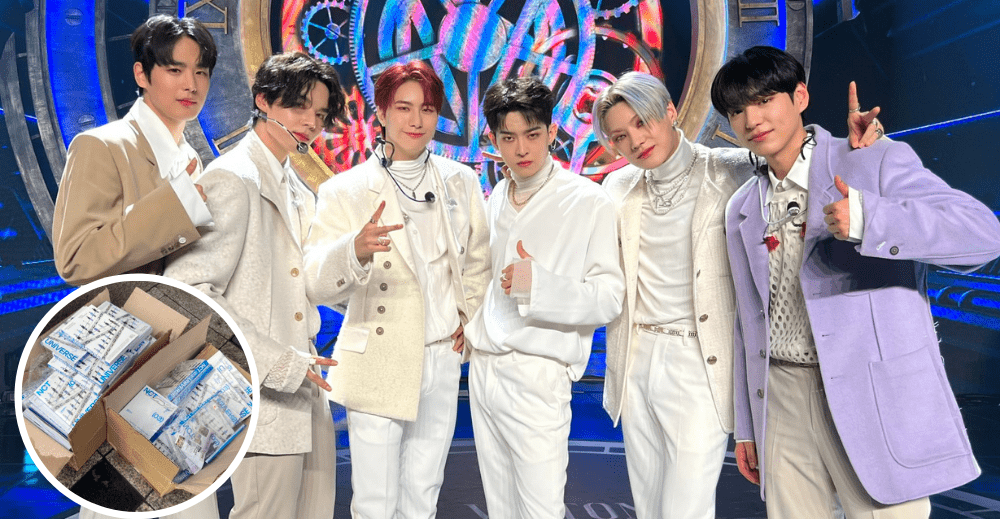‘Earth Day’ protest begins at HYBE as 57 million physical K-pop albums sold in 2021

While music enthusiasts in the rest of the world are lamenting the rise of digital streaming and the fall of physical albums, that doesn’t seem to be a problem for K-pop. The South Korean music industry single-handedly revived the concept of physical albums with over 57 million albums being sold in 2021 alone. And their popularity might have something to do with the merch that fans get. When a K-pop artist releases new music, along with the album CD, fans get a bunch of goodies from stickers, bookmarks, photo booklets, lyric booklets, posters, photocards, polaroids, mini-posters and more.
Photocards have become a collectible as a trading community has begun where fans trade or sell photocards at exorbitant prices. On top of that, buying albums provides other perks like getting into a fansign aka meet-and-greet or the satisfaction of seeing their favorite K-pop group topping charts and winning on music shows. But this has led to a huge number of albums being discarded after their purpose is over.
READ MORE
Does Victon's eco-friendly decision mean no more K-pop albums in future?
'Apocalypse': Dreamcatcher sets eco-friendly challenges, fans say 'feels like Earth Day'

Eco-friendly protest calls for ‘greener’ K-pop albums
Unfortunately, this has led to the growth of the K-pop industry’s carbon footprint at an alarming rate. Many albums end up in the trash after one gets into a fansign or has collected the photocards they wanted. And so, in light of Earth Day, environmentally-conscious fans have taken to protesting in hopes of spreading awareness about climate change. On April 21, fans and activists collected over 8,000 K-pop albums and are going around delivering them to the companies like HYBE that have produced them so that they can take a more recyclable approach that is better for the planet.
Following their first successful destination at the HYBE office, on April 22, which is Earth Day, activists are delivering K-pop albums back to their companies and labels to reprimand them for excess album production and wastage. Organized by Kpop4planet, the ‘No K-pop on a Dead Planet’ campaign hopes to provide a more "green" and recyclable solution for the production of K-pop albums such as digital albums. With the albums being made of non-biodegradable materials like PVC and plastic, their production has contributed to the 850 million tons of greenhouse gases being emitted. Kpop4planet's goal is the same as the UNEA International Legally Binding Agreement which plans on ending plastic pollution by 2024.

K-pop companies making changes
However, not all is lost, as some K-pop companies are trying to do their part for more environmentally-conscious album production. YG Entertainment pleasantly surprised many by announcing that their albums following the comebacks of Winner's Mino and Treasure would be made with recyclable material. IST Entertainment, on the other hand, introduced a digital version of Victon’s album where fans could download the album yet get the usual perks like photocards, tracking for charts and fansigns.










